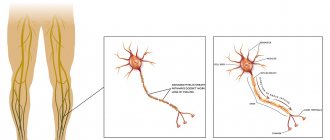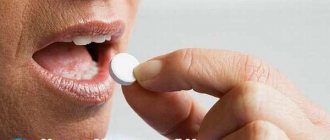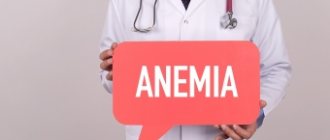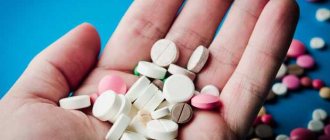Diseases of the cardiovascular system (CVS) are one of the main problems in medicine, since they quite often lead to death. Scientists around the world are trying to reduce mortality caused by disruption of the heart and blood vessels by inventing medications aimed at solving this problem. Equally important is determining the exact reason why CVS problems occur. After all, timely prevention will prevent the occurrence of serious pathologies.
To take statins or not is a very important question
Today it is known that most often heart attacks develop after the appearance of blood clots consisting of “bad” cholesterol. It is otherwise called low-density lipoprotein (LDL). It sticks in plaques on the inside of the blood vessels, gradually narrowing them. Blood flow becomes difficult until the passage is completely blocked. Statins were invented to combat LDL. These are synthetic drugs that reduce the production of enzymes that are responsible for creating bad cholesterol in the body. To make it easier to understand whether you need to take statins, you need to learn more about the principle of the drug, its positive and negative properties for the human body.
What are statins?
Statins are chemical substances that regulate the production of enzymes that ensure the synthesis of cholesterol in the human body.
The principle of action of statins:
- Reducing the concentration of LDL in the blood by inhibiting HMG-CoA reductase and stopping the synthesis of cholesterol in the liver.
- Reducing the amount of LDL cholesterol in people who have been diagnosed with homozygous familial hypercholesterolemia, which is not treatable with other medications.
- Reducing the amount of cholesterol by 35-47 percent, LDL - by 43-67 percent.
- Increased concentration of high-density lipoproteins.
- Reducing the risk of developing ischemic pathologies by 14-17 percent, myocardium and angina - by 23-27 percent.
- Lack of mutagenic and carcinogenic effects on the body.
Mechanism of targeted action of statins
Statins “work” at the biochemical level by blocking one of the key enzymes for cholesterol synthesis in the liver. Thus, the drugs have the following pharmacological effects:
- already within the first month the initial cholesterol concentration is noticeably reduced;
- reduces the production of “harmful” atherogenic lipids – LDL cholesterol, VLDL, TG;
- Unstably increase the concentration of cholesterol - HDL.
In addition, by increasing the number of HDL receptors on the surface of hepatocytes, statins increase their utilization by liver cells. Thus, the disturbed ratio of high- and low-density lipoproteins is restored, and the atherogenicity coefficient returns to normal.
The benefits of statins are:
- reducing the risk of ischemic manifestations in patients with insufficient blood supply to the heart and brain;
- prevention of cardiovascular diseases in persons with risk factors (age over 60 years, smoking, alcohol abuse, diabetes, etc.);
- reducing the risk of fatal complications of coronary artery disease and dyscirculatory encephalopathy;
- improving the quality of life of patients.
Cholesterol statins are considered a panacea, helping to reduce the risk of deposits with a reduction in subsequent cholesterol production by the liver. Simply put, excess cholesterol is called “bad”: it is believed that it is its production that can be reduced by drugs of the statin group.
In addition, these drugs have a pronounced therapeutic effect aimed at:
- To reduce cholesterol levels by suppressing its production in the liver.
- Fighting the breakdown of adipose tissue into various substances in the body.
- Increasing levels of “good” cholesterol by reducing “bad” cholesterol.
- Reducing the risk of progression of cardiovascular pathologies.
Drugs of the statin group of drugs are prescribed by a doctor based on the patient’s examination data. It is the doctor who will be able to correctly determine at what cholesterol level therapy with this medicine should be started.
Medical indications for use
Experts who prescribe statin drugs to their patients point out that these drugs are used not only as cholesterol-lowering drugs, but also as the most effective anti-inflammatory drugs.
Most doctors do not deny the fact that the root cause of atherosclerosis can be sluggish chronic inflammation in the patient’s body, primarily of vascular etiology.
When prescribing drugs that reduce the risk of atherosclerosis, doctors take into account possible vascular inflammation and the fact that statins, as a rule, also treat this.
The best time of day to take statins: when and why
Statins are drugs designed to reduce the risk of heart disease (primarily by lowering low-density lipoprotein (LDL) cholesterol levels). Certain statins work best in the evening, while others work best in the morning. The best time to take statins depends on the specific drug. This feature is important to consider in order to get the maximum benefit from them.
How do statins work?
Statins are also called lipid-lowering drugs, or HMG-CoA reductase inhibitors. They lower LDL cholesterol, which is also known as bad cholesterol. LDL can accumulate in the arteries, forming plaque on the vessel walls. These processes block blood flow in the arteries, leading to heart attack and stroke.
Statins reduce the risk of plaque formation and can also help the body get rid of cholesterol that has begun to build up in the arteries.
But high-density lipoprotein (HDL), or good cholesterol, can reduce the risk of heart attack and stroke. HDL cholesterol is generally believed to be beneficial: it can transport other forms of cholesterol from the blood to the liver, which helps the body get rid of bad cholesterol.
Research results
A large-scale 2020 study found that statins can reduce the risk of cardiovascular disease by 27% by lowering LDL levels
A 2010 meta-analysis suggests that statins may increase HDL levels, which may further protect the body from cardiovascular disease.
In a 2020 study, experts report that the effects of statins vary depending on a person's genetic risk factor. These drugs reduced the risk of cardiovascular disease by 13% in people at low risk, by 29% in people at average risk, and by 48% in people at high risk.
Best time to take different statins
Important: A person taking statins must follow their doctor's orders. The optimal time for taking medications should be discussed between the patient and the attending physician, and it depends on the type of statin:
Short acting statins
A systematic review found that short-acting statins worked best when people took them in the evening. Taking these statins later in the day resulted in lower levels of total and LDL cholesterol compared with taking them in the morning.
Short-acting statins work best at night because the liver enzyme is more active at this time. Most short-acting statins have a half-life of 6 hours (that is, the time it takes for the body to process and remove half the amount of the drug).
Long acting statins
Long-acting statins take longer for the body to process. In this case, the half-life can be 19 hours.
Long-acting statins are known to work equally well regardless of when they are taken (morning or evening). Therefore, people taking long-acting statins have a choice.
For patients using long-acting statins, experts recommend taking medications at the most convenient time of day to remember: It is important to adhere to the timing of the prescribed doses. If a person chooses to take statins in the morning, he must strictly adhere to the chosen schedule.
Classification of statins
There are currently four generations of statins. Representatives of the first - lovastatin and simvastatin - are based on penicillin mushrooms. Representatives of other categories were bred under synthetic conditions.
| Generation | Names of medications | Peculiarities |
| 1st | Lovastatin, Simvastatin, Pravastatin | They do not significantly affect the level of cholesterol in the blood; they provoke side effects more often than others. |
| 2nd | Fluvastatin | They are characterized by a long action and a high content of the active component in the blood. |
| 3rd | Atorvastatin | Lower LDL levels and increase HDL levels. |
| 4th | Rosuvastatin | They are considered the most effective and safe, but statins provoke the development of diabetes mellitus more than other statins and have a bad effect on the kidneys. |
It is a mistake to think that first-generation statins have fewer side effects than more modern ones. Everyone who took simvastatin complained of symptoms characteristic of the newest generations of statins.
When is the best time to take statins: morning or evening?
If you have ever searched the Internet for answers to the question of how best to take statins, you have come across different opinions on this matter. The instructions for the medications contain a clear answer to the question of how to take statins in the morning or evening.
The maximum amount of cholesterol is synthesized at night. At this point, the concentration of statin in the blood should still be high. Then the drug will block the largest number of cholesterol formation reactions, which means it will more effectively reduce its concentration.
Each drug has a different half-life:
- lovastatin – 3 hours;
- simvastatin – 2 hours;
- fluvastatin – 7 hours;
- atorvastatin – 14 hours;
- rosuvastatin – 19 hours;
- pitavastatin – 9 hours.
Accordingly, it is necessary to take statins that have a short elimination period (lovastatin, simvastatin, fluvastatin) in the evening. Otherwise, by the time cholesterol is actively synthesized, trace amounts of the drug will remain in the blood. Atorvastatin and rosuvastatin are eliminated rather slowly and can be taken at any time of the day. Pitavastatin occupies an intermediate position. The instructions recommend taking the tablet before bed, but this is not a necessary condition.
How long will the prescribed treatment last?
Before the doctor selects the necessary drug from the group of statins for you, it is advisable to undergo a full examination of the body and pass:
- general clinical analysis of blood and urine - to determine the general functions of the body;
- lipid profile - a complete study of the state of fat metabolism in the body with the determination of total cholesterol, its atherogenic and antiatherogenic fractions, triglycerides and the risk factor for cardiovascular and cerebrovascular complications of atherosclerosis in each individual patient;
- biochemical analysis, including determination of: total and direct/indirect bilirubin, ALT and AST, CPK, creatine and urea to determine kidney function.
If these examinations are within normal limits, then there are no contraindications to prescribing statins. A month after starting medication, it is advisable to repeat the entire examination to determine the tactics for further action.
If all tests are within normal limits, then statins for lowering cholesterol are suitable for the patient and bring more benefit than harm.
If control tests reveal abnormalities in the liver, skeletal muscles, or kidneys in patients, statin therapy does more harm than good.
Also tell your doctor if:
- You have a known allergy. It doesn’t matter if it was for medicine or food or animal fur. The reaction of an allergic person’s body is unknown, so a specialist should check first.
- List chronic diseases, especially if they are diseases of the liver or kidneys, as well as the thyroid gland.
- Warn about pregnancy or breastfeeding.
- Show the doctor all your latest tests, especially blood tests.
- Show a list of all medications taken, even harmless (in the consumer’s opinion) vitamins.
Statins and other medications
According to WHO and AAS, statins are mandatory in the treatment of ischemia, which has a high likelihood of developing complications and heart attack. Prescribing statins to stabilize the patient's HDL will not be complete, so the doctor also prescribes:
- Beta blockers: Bisoprol, Metoprolol.
- Antiplatelet agents: Aspirin, Aspicor.
- ACE inhibitors: Quadripil, Enalapril.
Important! Numerous studies have proven that this combination of drugs is safe for human health.
Previously, statins were recommended to be taken only before bed to separate their effects from other medications, but now more and more leading scientists are inclined to think about taking combination drugs.
At the moment, the combined drug Polypill is being tested in laboratories, and in pharmacies you can already find Caduet and Duplekor, which combine Atorvastatin and Amlodipine.
If cholesterol exceeds the norm by more than 7.2 mmol/l, it is rational to prescribe statins with fibrates. This decision must be made by a qualified specialist, taking into account the patient’s individual characteristics and all possible risks.
Consequences of self-withdrawal of statins
The decision to discontinue the drug should be made by the attending physician based on the results of the examination. Its use is also stopped if the level of liver enzymes exceeds the norm three times.
Studies have been conducted that have proven that refusing to take medications without permission leads to an increased risk of stroke, heart attack and death.
But long-term use of medications leads to gastric disorders, allergic reactions, damage to muscle tissue, and an increased risk of developing diabetes.
Therefore, statins should not be considered a panacea for all ills. Their appointment and cancellation must be carried out after weighing all the pros and cons and assessing the possible risks.
Statin drugs
In Russia you can find several types of cholesterol medications:
- Atorvastatin
- Simvastatin
- Rosuvostatin
- Lovastatin
- Fluvastatin
The first three statin drugs are most often used: they are the most studied.
- Simvastatin is the weakest drug. It makes sense to use it only for those people whose cholesterol is slightly elevated. These are tablets such as Zocor, Vazilip, Simvacard, Sivahexal, Simvastol. They come in dosages of 10, 20 and 40 mg.
- Atorvastatin is already stronger. It can be used if cholesterol levels are very high. These are cholesterol tablets Liprimar, Atoris, Torvacard, Novostat, Liptonorm. The dosage can be 10, 20, 30, 40 and 80 mg.
- Rosuvostatin is the strongest. Doctors prescribe it for very high cholesterol levels, when they need to be quickly reduced. These are tablets Crestor, Roxera, Mertenil, Rozulip, Tevastor. Rosecard. It has the following doses: 5, 10, 20 and 40 mg.
- Lovastatin is contained in Cardiostatin, Holetar, Mevacor. This drug is available only in a dose of 20 mg per tablet.
- Fluvastatin currently has only one type of tablet - Lescor (20 or 40 mg)
As you can see, the dosages of the drugs are similar. But due to differences in effectiveness, 10 mg of rosuvostatin lowers cholesterol faster than 10 mg of atorvastatin. And 10 mg of Atoris is more effective than 10 mg of Vasilip. Therefore, only the attending physician can prescribe statins, having assessed all factors, contraindications and the likelihood of side effects.
Before prescribing statins to patients who are at low cardiovascular risk, experienced practitioners prefer to try the diet for several months.
Traditional medicine recommends a diet with limited fat and reduced calorie intake to reduce cholesterol levels. A low-carbohydrate diet helps.
If diet therapy does not bring results, it is worth remembering that prescribing statins to patients of a special category has its own characteristics:
- Statins are not prescribed to children and adolescents. The exception is cases of diseases with rare genetic pathologies.
- Elderly patients are initially prescribed half the recommended dosage, gradually increasing to normal.
- The doctor carefully selects the drug for the prevention of stroke, since it must be as gentle as possible.
- All patients who have undergone reconstructive surgery on the heart vessels need to take cholesterol pills. Treatment tactics must be aggressive because the risk is high. It is important to combine taking medications with maintaining a healthy lifestyle.
The cause of atherosclerosis, heart attack and stroke, most often, is not high cholesterol in the blood, but chronic, unexpressed inflammation. Chronic inflammation results from the body's attempt to neutralize junk food, toxins, infection, and the effects of a sedentary, sedentary lifestyle.
Unfortunately, it is this inflammatory process that damages the walls of blood vessels from the inside, and atherosclerotic plaques form at the sites of damage.
Whether it is necessary to take statins for high cholesterol is up to the patient to decide. It is worth listening to the advice of doctors on the correction regimen and treatment, but in some cases it is better to replace statins with diet therapy and a healthy lifestyle.
Doctors, for their part, must clearly and intelligibly justify to the patient their decision to prescribe him a course of statins.
One of the most important organic compounds produced by our body is cholesterol. This hydrocarbon is necessary for almost all tissues.
Without this connection, the normal existence of not a single living cell is possible. And most importantly, cholesterol is the main raw material for the production of sex hormones.
Its deficiency leads to sexual dysfunction in men and amenorrhea in women.
If elevated levels of bad cholesterol are detected in blood tests, the doctor will definitely recommend a course of treatment with drugs that lower cholesterol and prevent the development of cardiovascular pathologies. The main groups of drugs for lowering cholesterol are fibrates and statins.
When prescribing statins, the doctor will definitely warn the patient that this drug will now become an integral part of his daily diet for the rest of his life. And also that almost all drugs in this group have quite a lot of side effects.
A person has to decide for himself how to reduce cholesterol. Take medications, and whether it’s worth it, or change your usual lifestyle.
Statins are a group of medications that can significantly reduce the concentration of LDL cholesterol (low-density lipoprotein or “bad” cholesterol) in a person’s blood.
The mechanism of action of these drugs is as follows: the drugs provoke a significant decrease in the production of special enzymes in the patient’s body that are responsible for the production of cholesterol.
Statins reduce the body's overall production of cholesterol by 40–45%, thereby reducing the risk of heart attack, ischemia, and angina.
Side effects
Despite the undeniable health benefits, the drugs can cause many unpleasant side effects:
- sleep disorders;
- asthenia;
- constipation;
- diarrhea;
- migraine;
- nausea and vomiting;
- myalgia;
- abdominal pain;
- bloating;
- thrombocytopenia;
- neuropathy;
- dizziness;
- weakness;
- sudden weight loss, obesity;
- hepatitis and jaundice;
- pancreatitis;
- arthritis, myositis;
- joint pain;
- muscle cramps;
- rash and hives;
- erythrema;
- skin itching;
- impotence;
- swelling;
- diabetes.
Who needs to take statins?
The absolute indications for taking statin drugs are:
- hypercholesterolemia, insensitive to radical changes in diet and diet lasting more than 3 months;
- high coronary risk combined with transient hypercholesterolemia;
- acute coronary syndrome;
- arterial hypertension;
- stroke, post-stroke condition with cardiosclerosis;
- atherosclerosis of arteries;
- cardiosclerosis in the post-infarction state;
- surgery performed on large arteries and vessels, on the heart.
Patients with diabetes and women of childbearing age do not need to take statins; before doing so, consultation with a qualified specialist is required.
Contraindications
Taking statins is prohibited:
- during pregnancy;
- people with allergies;
- during lactation;
- for liver diseases (cirrhosis, hepatitis).
List of cholesterol medications
There are a great variety of medications to reduce the concentration of cholesterol in the blood; below is an approximate list of the assortment of pharmacies.
There are other tablets that lower cholesterol in the blood - these are derivatives of fibric acid, which, by binding with bile acid, reduce the active production of cholesterol by the liver. Fenofibrates can reduce lipids in the body, leading to lower cholesterol levels.
According to clinical studies, it was found that the use of fenofibrates reduces total cholesterol by 25%, triglycerides by 40-50%, and at the same time increases good cholesterol by 10-30%.
The instructions for cholesterol-lowering tablets fenofibrates and ciprofibrates indicate that their use helps reduce extravascular deposits - tendon xanthomas, and reduce triglyceride and cholesterol levels in patients with hypercholesterolemia.
However, the use of these medications leads to a number of side effects, most often these are various types of digestive disorders - dyspepsia, flatulence (bloating), vomiting or diarrhea.
| Fenofibrates | ||
| Name of the drug | Release form | Average price in pharmacies (summer 2013) |
| Thaicolor | 145 mg. table 30 pcs. | 850 rub. |
| Lipantil, Exlip | 200 mg. caps. 30 pcs | 900 rub. |
| Ciprofibrate – Lipanor | ||
| Gemfibrozil | ||
According to your doctor’s recommendations, you can take dietary supplements, such as Tykveol, Omega 3, lipoic acid, flaxseed oil, which help to slightly reduce cholesterol levels.
In general, dietary supplements are not medicines, and homeopathy does not undergo proper clinical research, therefore, from the point of view of evidence-based medicine, these drugs are significantly inferior to statins in preventing premature mortality or vascular accidents.
| Name of the drug | Release form | Average price in pharmacies (summer 2013) |
| Omega Forte | 30 tablets | 130-140 rub. |
| Doppelhertz Omega 3 | 30 capsules | 210-250 rub. |
| Tykveol | 50 tablets | 190-200 rub. |
| Lipoic acid | 50 tablets | 30 rub. |
| SitoPren (dietary supplement) | 60 tablets | 600 rub. |
Cardiologists in the United States strongly recommend that patients with high blood cholesterol take tablets with fish oil (Omega 3), which provides protection against cardiovascular disease, as well as prevention of arthritis and depression.
However, fish oil should also be taken with caution as it increases the risk of developing chronic pancreatitis.
This is pumpkin seed oil; the use of the drug is recommended for people with cerebral atherosclerosis, hepatitis, and cholecystitis. This is a herbal medicine with anti-inflammatory, choleretic, hepatoprotective, and antioxidant effects.
It is used for the prevention and treatment of coronary atherosclerosis, since it is an endogenous antioxidant, has a positive effect on carbohydrate metabolism, increases glycogen in the liver, and improves neuronal trophism.
Cholesterol is an organic compound found in the cell membranes of living organisms. A high concentration of the substance in the blood poses a serious risk of developing a heart attack, stroke and other pathologies that threaten the patient’s life.
Cholesterol, moving through the circulatory system, tends to settle on the walls of blood vessels, as a result of which the lumens narrow and plaques appear. In the presence of provoking factors - old age, aneurysms, a heart attack or stroke in history, narrowing of the lumens causes serious harm to health.
When diet and physical activity do not help reduce the level of the substance in the body, medications are prescribed. They belong to the pharmaceutical group of statins and fibrates. Additionally, you need to consume lipoic acid and Omega-3.
Let's look at what cholesterol-lowering medications you can take for diabetes, what their contraindications and side effects are.
Statins - drugs to lower cholesterol levels
Statins are chemical substances that are aimed at reducing the production of enzymes necessary for the production of cholesterol in the body. While taking these medications, the concentration of HDL cholesterol, the “good” cholesterol, increases.
Medicines in this group help reduce the concentration of substances in diabetics because they inhibit HMG-CoA reductase. Taking it helps reduce the total content of the substance by 35-45%, and the “dangerous” component in the blood is reduced by 50-60%.
Clinical studies have shown that chronic use of statins reduces the risk of developing cardiovascular pathologies by 15%. The drugs do not have mutagenic or carcinogenic effects.
Drugs to lower blood cholesterol have a powerful effect on the body. They help cleanse blood vessels and protect the body from problems with blood circulation in the brain, from heart attacks and strokes.
These medications are prescribed when other treatment methods, such as diet, weight loss and moderate exercise, do not produce a noticeable effect.
What medications are best to take to lower cholesterol?
general characteristics
It is worth noting that cholesterol is part of almost all cell walls. It is involved in the production of vitamin D and many hormones. It also helps the body strengthen its immune system.
In addition, this substance improves the functioning of many internal organs:
- liver;
- brain;
- muscles;
- nerve fibers.
And, despite all the beneficial properties, excess cholesterol can lead to the development of serious complications. One of them is blockage of blood vessels.
This is especially true for women aged 50 years and older. During the period when they have to face menopause, the amount of cholesterol in their body increases, which leads to problems with cerebral circulation and even heart attacks.
Possible contraindications
It is not recommended to take the drug with grapefruit juice because it contains a substance that slows down the metabolism of the active component. Its increased concentration in the blood can develop toxic reactions. These medications cannot be combined with alcohol and certain antibiotics. Alcohol will increase the load on the liver, worsening the patient's condition.
Contraindications to the use of statins are: active liver pathology, the presence of acute hepatitis. Before starting treatment, a series of biochemical tests should be performed to determine the concentration of enzymes in the liver. The level of ALT and AST enzymes, increased by more than 3 times, is also a reason to stop taking it.
Statins are not prescribed to pregnant and breastfeeding women. You should not take these medications while you are planning a baby. It is also contraindicated for people with kidney problems.
- Taking these medications may be accompanied by indigestion and cause bowel problems.
- An allergic reaction is possible, manifesting itself in the form of a rash and itching of the skin.
- Taking medications can cause headaches and insomnia. The psycho-emotional state often worsens.
- Muscle pain and cramps may occur.
- Some patients develop swelling and weight gain.
- Long-term use of drugs can impair kidney function.
- Medicines help increase the level of liver enzyme activity.
Among the latest generation of statins, Rosuvastin is distinguished, which reduces cholesterol levels by 55%. The active substances contained in the drug can remain in the body for a long time, thereby enhancing the positive effect.
The drug Atorvastatin lowers the level of bad cholesterol slightly less, but at the same time increases the formation of high-density substances. Simvastatin is a balanced drug with the least side effects.
Statins are contraindicated
Despite the constant controversy and debate surrounding the harms and benefits of statins against cholesterol, specialists continue to prescribe drugs of this series to their patients. In some cases, treatment with these drugs is mandatory, as it is an accompanying therapy that improves the entire treatment process.
Statins should be taken for the following diseases:
- acute coronary syndrome;
- vascular lesions of atherosclerotic etiology;
- post-stroke conditions;
- hypercholesterolemia conditions;
- recovery period after stenting, coronary bypass surgery, angioplasty;
- angina pectoris;
- post-infarction conditions;
- hypertension, accompanied by frequent hypertensive crises;
- vegetative-vascular dystonia;
- metabolic syndrome.
The selection of a drug is made by the doctor based on the patient’s concomitant pathologies or predisposition to them.
There are conditions in which taking statins is strictly contraindicated. The benefit of statins against cholesterol in this case is completely nullified by the harmful effects that the drug has on the body. Statins are contraindicated in patients with a history of:
- pathologies of the thyroid gland;
- chronic and acute renal pathologies;
- disruptions in the functioning of the endocrine system;
- allergic reactions;
- complex disorders of liver function;
- cataracts or a high risk of developing them;
- individual intolerance to the drug.
These medications are also not prescribed to pregnant women and nursing mothers. Women planning a pregnancy should not take them either. Older patients and women before menopause take statins with caution and only as prescribed by doctors.
How to properly stop taking statins
Statins are used as a treatment or prophylactic agent to reduce the risk of heart attack or stroke. But they sometimes cause side effects that can negate all the benefits.
With caution, therapy with these drugs is prescribed to people suffering from diseases of the kidneys, liver and visual organs. This also applies to older patients with diabetes.
If your cholesterol returns to normal, you can stop taking statins. Since the active substances accumulated in the body during treatment, the effect will persist for some time. But gradually the indicators will begin to rise again. To avoid this, you should follow a diet, increase physical activity, and consume omega-3.
The harm of statins
In the 2000s, there was a real “boom” for statins in medicine: the drugs were prescribed even to those whose cholesterol was slightly elevated, and the condition could be corrected with the right diet.
After several years of unjustified popularity of the drugs atorvastatin, simvastatin and other statins, studies began to be published on the negative impact of these drugs on the functioning of internal organs.
Some publications categorically stated: the benefits and harms of statin treatment are equivalent.
Harmful effects on the liver
Why are people looking for how to lower their cholesterol without statins, if the drugs are so useful and effective? Long courses of intensive use of any drug are fraught with consequences.
It doesn't matter how useful and necessary the medicine is. It is known that most pharmaceutical products are good in one way, but harmful in other aspects.
Sometimes after a long treatment you still need to recover separately, especially if it’s antibiotics.
The gastrointestinal tract and circulatory system suffer. Of course, the risk is justified; medications help cope with serious, even dangerous diseases. But what if the problem is only high cholesterol and the body’s inability to control it on its own? How to lower cholesterol, what to use and is it even possible to replace statins prescribed by a doctor?
First, let's look at how the inhibitors themselves are harmful. Side effects are usually detected gradually, sometimes many months pass, and it is difficult to immediately understand that this is the result of using statins.
Main symptoms:
- Insomnia;
- Headache;
- Dizziness;
- Daily, short-term memory deteriorates;
- Development of depression;
- Mood swings;
- Nausea or constipation, diarrhea, stomach pain, possibly flatulence;
- Hepatitis, pancreatitis;
- Jaundice;
- Even anorexia;
- Pain in muscles or joints, cramps, also arthritis or myopathy;
- Skin rash;
- Erythema, itching;
- Thrombosis in blood vessels;
- A sharp increase or, conversely, a dangerous decrease in sugar;
- Obesity, impotence, weakened libido;
- Peripheral edema;
- Cataract;
- Acute inflammation of the kidneys;
- Multiple sclerosis;
- Diseases of the respiratory system;
- Alzheimer's disease.
Cholesterol pills aim to stop cholesterol production in the liver. At the same time, the drug inhibits the production of other active substances necessary for the body to carry out normal biological reactions.
Regular use of drugs from the statin group provokes a constant lack of active substances and, as a result, the progression of pathologies that the patient has not previously suffered from.
central nervous system
Frequent side effects and subsequent chronic pathologies from regular use of statins are considered to be pathologies of the functioning of the central nervous system. First of all, patients regularly taking statins to lower cholesterol experience:
- amnesia;
- hypersthesia;
- paresthesia;
- peripheral neuropathy.
With regular and long-term treatment with statins, the patient may develop complex pathologies:
- depressive states (cases of suicidal behavior have been reported while taking statins);
- sudden mood swings;
- memory losses;
- sleep disturbance.
As a rule, these pathologies can also be aggravated by provocations from other systems and organs. The patient may experience severe pain in the joints and muscles, which, in turn, leads to an increase in depressive tendencies.
Endocrinological disruptions
Statins are also dangerous because they provoke metabolic disorders in the human body, especially during long-term use.
The patient often experiences the following side effects:
- hypoglycemia;
- weight gain;
- potency disorder in men;
- peripheral edema
Diabetes mellitus is considered the most complex failure in the metabolic system, which is often diagnosed in patients who regularly take statin medications to normalize cholesterol levels in the blood.
Side effects
Treatment with drugs of the statin group for high cholesterol index in cases of lipid metabolism disorders began recently and the results of lowering cholesterol prove the effectiveness of this drug group of drugs.
Treatment with statins requires long-term use for a therapeutic effect, therefore, when prescribing these medications, it is necessary to take into account the degree of negative impact of the tablets on the patient’s body.
Common side effects are:
- Epidermal disorders - rashes on the skin, severe itching of the skin, edema of peripheral organs and skin, photosensitivity pathology;
- Violation of the functionality of the digestive tract with severe symptoms - severe nausea, which often provokes vomiting;
- Symptoms of flatulence and defecation disorders (severe diarrhea or constipation);
- Pain in the head , as well as severe dizziness, the sleep process is disrupted (insomnia appears at night, and drowsiness during the day);
- Memory disturbances occur , paresthesia develops;
- There is a threat of systemic pathology - thrombocytopenia;
- Development of hyperglycemia - diabetes mellitus;
- Decreased libido in men - impotence.
Side effects of statins
More severe complications when taking statins include pathologies of the supporting apparatus and muscle tissue of the human skeleton:
- Myalgia disease;
- Pathology arthralgia;
- Cramps in muscle tissue;
- Pathology rhabdomyolysis;
- Pathology myopathy.
If the development of such side effects does not stop the statin medication course, then the person may be susceptible to the dangerous pathology rhabdomyolysis, in which bone tissue cells are destroyed, which leads to disability.
Do not forget the effect of the medication on the liver and kidneys.
The side effects of taking statins on the kidneys have been studied quite recently, and research experiments have proven that patients with a healthy urinary system are susceptible to pathologies such as:
- The disease is tubulopathy;
- Renal organ failure.
The action of the drug is aimed at suppressing the action of liver cells, and with long-term use, statins can cause negative effects and provoke the following pathologies:
- Diseases in liver cells;
- Increase in transminase index;
- Development of jaundice;
- Liver cell hepatitis;
- Pathology cirrhosis of the liver organ.
If, if side effects develop, the statin medication course is not discontinued, then the person may be susceptible to the dangerous pathology rhabdomyolysis










